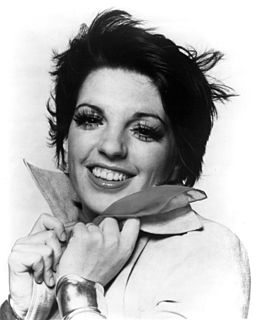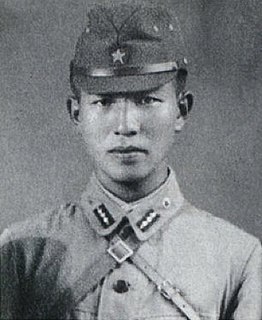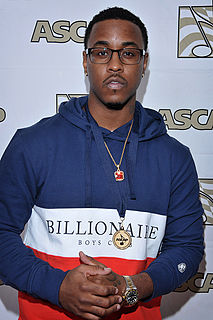A Quote by Maggie Stiefvater
Related Quotes
She could've looked at the tiny miracles in front of her: my feet, my hands, my fingers, the shape of my shoulders beneath my jacket, my human body, but she only stared at my eyes. The wind whipped again, through the trees, but it had no force, no power over me. The cold bit at my fingers, but they stayed fingers. "Grace," I said, very softly. "Say something." "Sam," she said, and I crushed her to me.
She put a hit on her boyfriend, so it's not like she hasn't murdered someone." "And you know that how?" Sam asks. I'm trying really hard to be honest, but telling the whole thing to Sam seems beyond me. Still, the fragments sound ridiculous on their own. "She said so. In the park." He rolls his eyes. "Because the two of you were so friendly." "I guess she mistook me for someone else." I sound so much like Philip that it scares me. I can hear the menace in my tone. "Who?" Sam asks, not flinching. I force my voice back to normal. "Uh, the person who killed him.
Some attribute had departed from her, the permanence of which had been essential to keep her a woman. Such is frequently the fate, and such the stern development, of the feminine character and person, when the woman has encountered, and lived through, an experience of peculiar severity. If she be all tenderness, she will die. If she survive, the tenderness will either be crushed out of her, or—and the outward semblance is the same—crushed so deeply into her heart that it can never show itself more.
She didn’t understand why it was happening,” he said. “I had to tell her she would die. Her social worker said I had to tell her. I had to tell her she would die, so I told her she was going to heaven. She asked if I would be there, and I said that I would not, not yet. But eventually, she said, and I promised that yes, of course, very soon. And I told her that in the meantime we had great family up there that would take care of her. And she asked me when I would be there, and I told her soon. Twenty-two years ago.
One of my mentors was Patricia Schroeder, and one night she came to me on the floor and she said to me, "Why are we sitting in Congress, when a lot of women would try to do it and couldn't? Why are we here and others aren't?" And I thought back and said it was because my father believed in me and she said the same thing, she said her father believed in her and thought she could do anything.
(on Marilyn Monroe) I was walking down Broadway with her and nobody was stopping us. She was going to (Stella Adler's) actors' studio, and she was taking me to show me what it was all about. And I said to her: "How come nobody is taking your picture?" She said: "Well, watch." She took her scarf off, straightened her shoulders, and draped something another way, and we were surrounded. It must have been 400 people. And I said: "Now I know why!"
As he was about to leave, she said, "Murtagh." He paused and turned to regard her. She hesitated for a moment, then mustered her courage and said, "Why?" She though he understood her meaning: Why her? Why save her, and now why try to rescue her? She had guessed at the answer, but she wanted to hear him say it. He stared at her for the longest while, and then, in a low, hard voice, he said, "You know why.
At 19, if a woman said no, no meant no. If she didn't say anything and she was open, and she was down, it was like how far can I go? If I touch her breast and she's down for me to touch her breast, cool. If I touch her lower, and she's down and she's not stopping me, cool. I'm going to kiss her or whatever. It was simply if a woman said no or pushed you away that was non-consent.
Hillary Clinton said that her childhood dream was to be an Olympic athlete. But she was not athletic enough. She said she wanted to be an astronaut, but at the time they didn't take women. She said she wanted to go into medicine, but hospitals made her woozy. Should she be telling people this story? I mean she's basically saying she wants to be president because she can't do anything else.
"She (Minnie Ruth Solomon) was unusual because even though I knew her family was as poor as ours, nothing she said or did seemed touched by that. Or by prejudice. Or by anything the world said or did. It was as if she had something inside her that somehow made all that not count. I fell in love with her some the first time we ever talked, and a little bit more every time after that until I thought I couldn't love her more than I did. And when I felt that way, I asked her to marry me . . . and she said she would."































